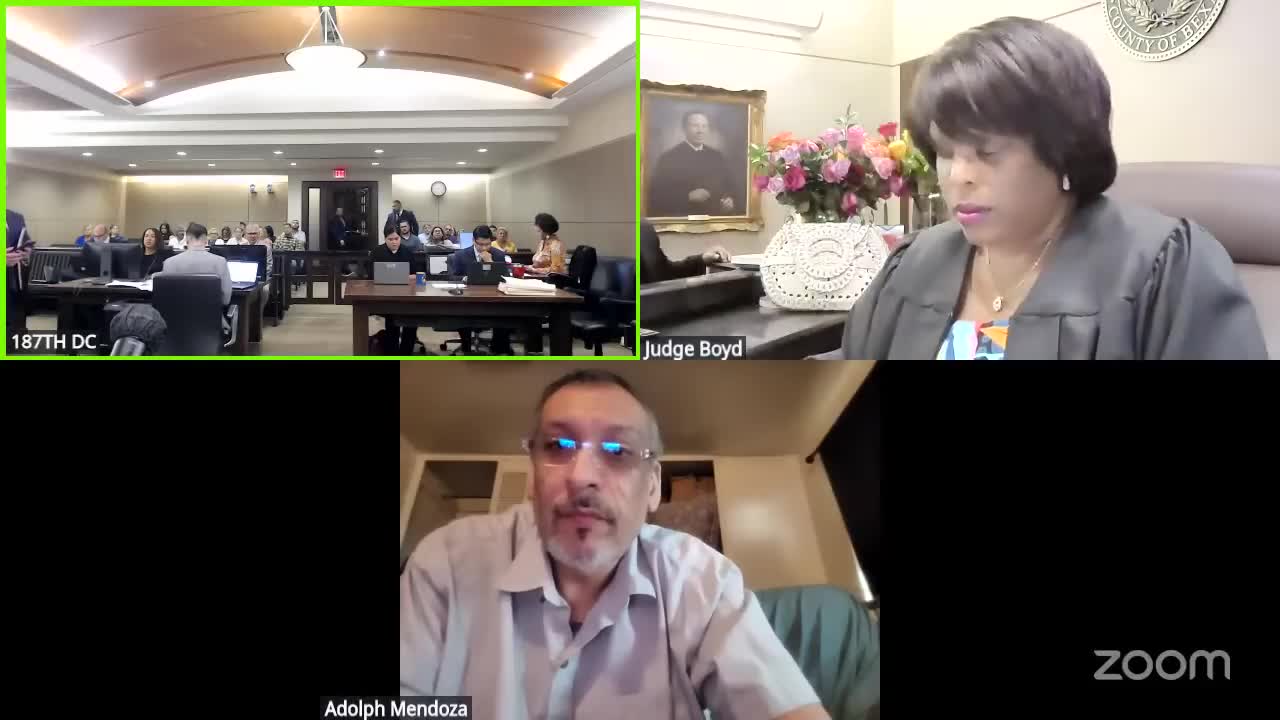Article not found
This article is no longer available. But don't worry—we've gathered other articles that discuss the same topic.

Judge extends David Saldivar’s supervision and refers him to felony drug court; no-contact order and GPS conditions set
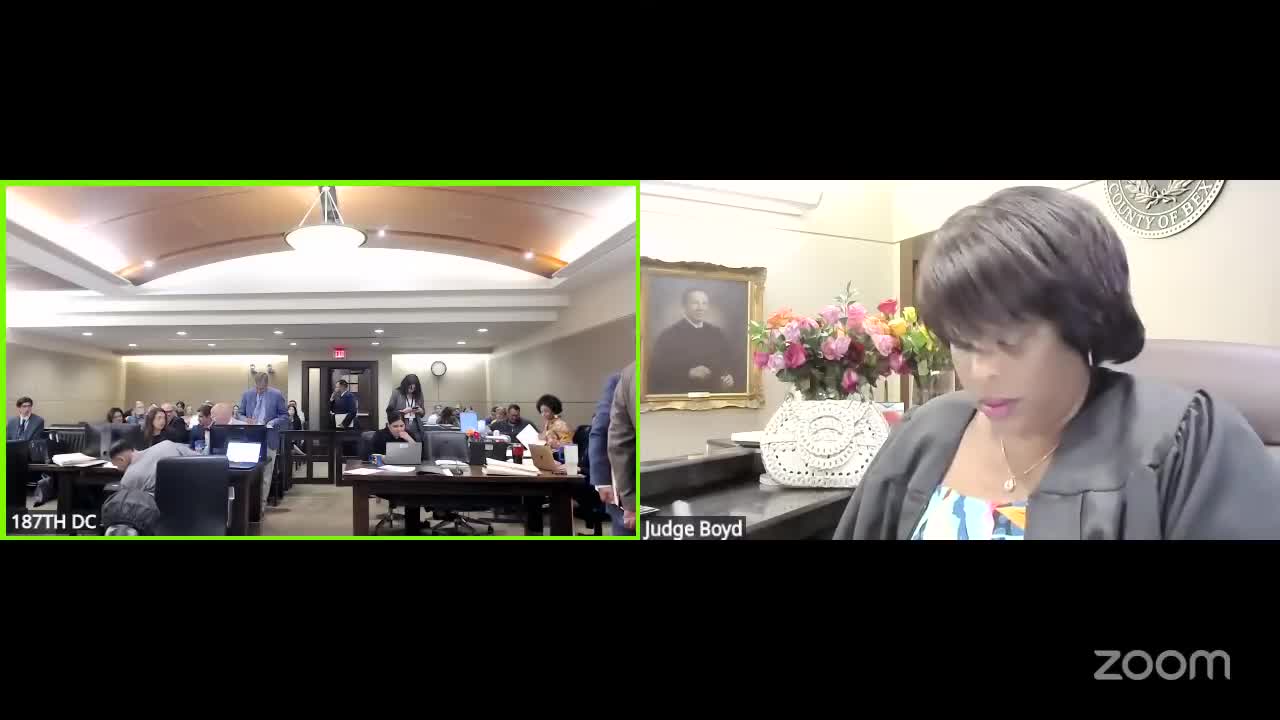
Raul Lopez pleads no contest to indecency charge; judge imposes eight-year sentence and records immigration consequences
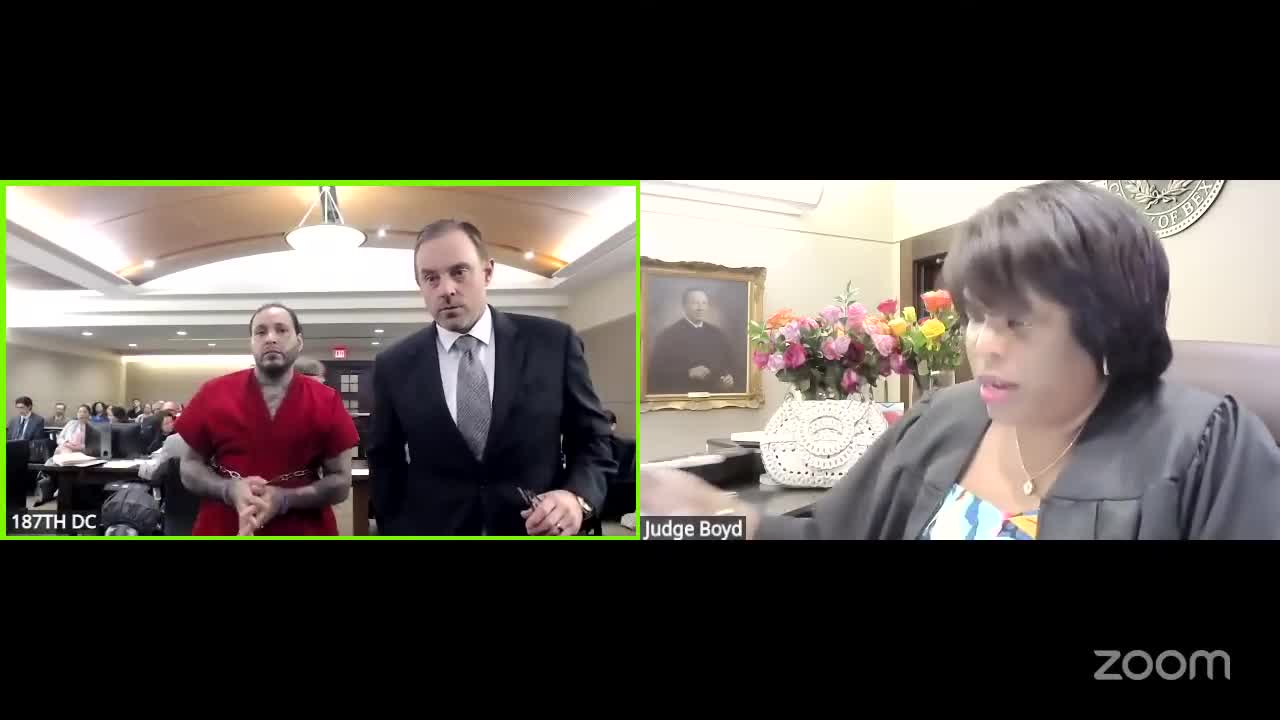
Alexander Aguilar pleads guilty to second-degree offense involving a minor; judge sentences him to 16 years prison with lifelong restrictions
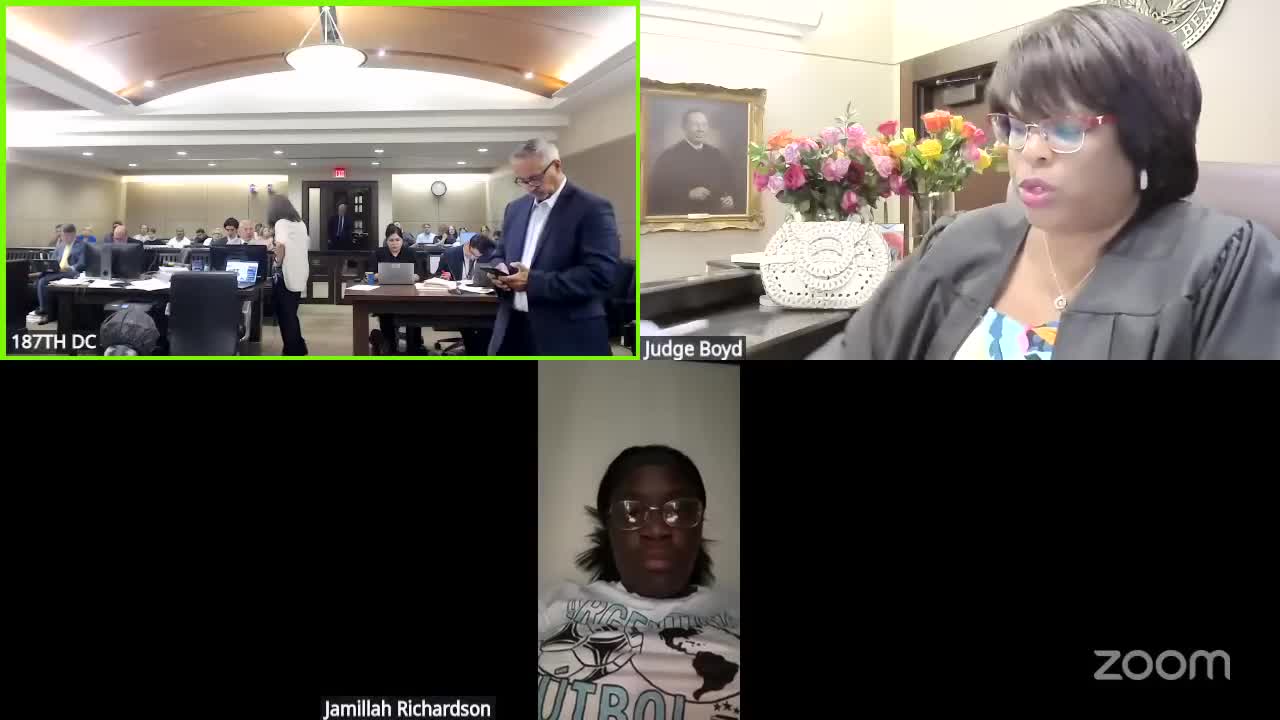
Jamila Richardson pleads no contest; judge accepts plea and orders two-day county jail term, restitution and no-contact conditions
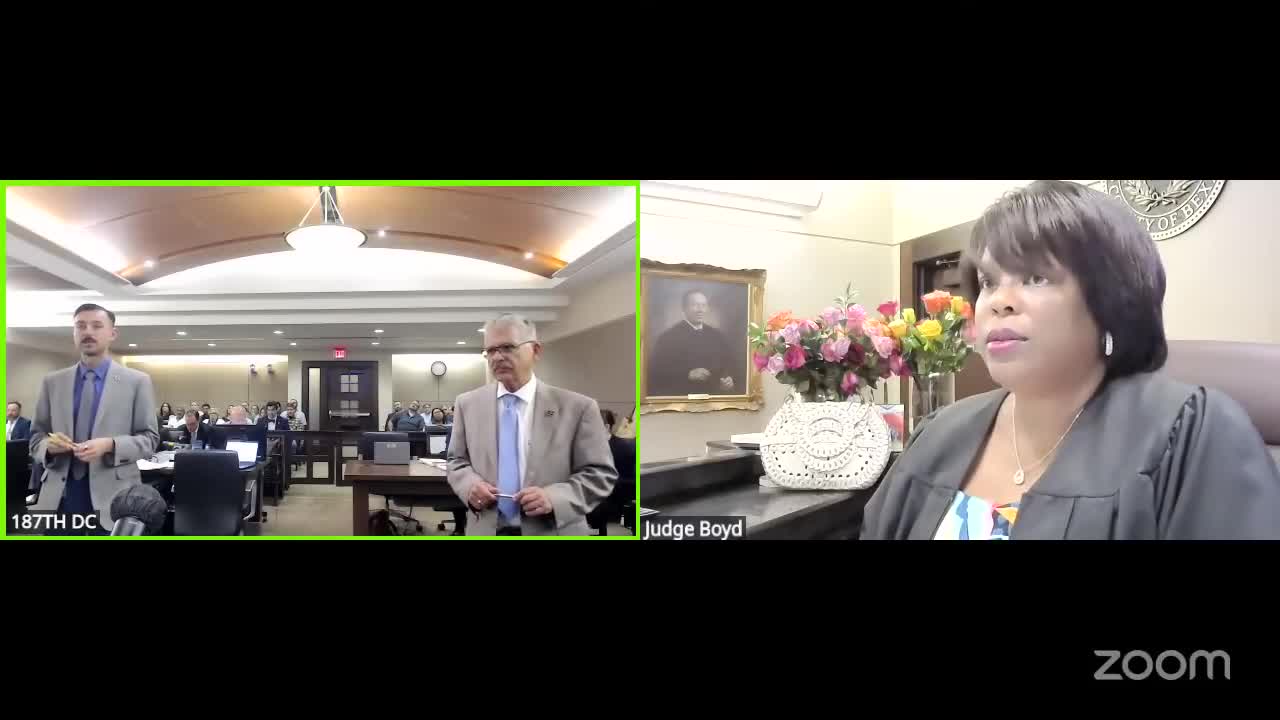
Judge revokes Victor Alvarez's probation, imposes four-year prison term after substance-treatment discharge
